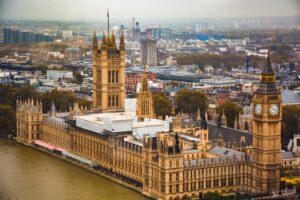Chancellor Reeves, presenting her Spring Statement in the House of Commons on the 26th March, said that she was proud of what the Government had already achieved in this Parliament, noting three interest rate cuts by the Bank of England since July 2024. The Chancellor referred to the impact of the war in Ukraine and continuing uncertainty in the global economic outlook but said that the Government would act responsibly and be on the side of working people. She said that, in a “changing” world, the Office for Budget Responsibility (OBR) had confirmed that the plan for change was working and would return stability to the economy, however, the OBR had downgraded growth forecasts for 2025 from 2% to 1%.
The OBR estimates that recent welfare reforms will save £4.8 billion, including a range of changes to Universal Credit arrangements, £1 billion being dedicated to supporting people back into work, and additional measures to tackle fraud and errors in the welfare system.
The Government is to increase spending on defence to 2.5% of GDP by 2027, funded in part by cutting overseas aid to 0.3% of GDP, as well as committing additional funds to invest in new training routes and apprenticeships, especially in skills related to the construction industry. The OBR also estimates that planning reforms will ultimately support a 0.2% increase in GDP by 2029/30, and that the rate of inflation is likely to fall slowly from an average of 3.2% in 2025 to around 2% by 2027. However, the OBR has also warned that tariffs recently imposed on UK exports to the USA could wipe out their growth estimates and any fiscal headroom that the Chancellor has managed to achieve.
Labour backbenchers, opposition parties and campaign groups have pushed back against Ministers’ welfare reforms, asking why disability benefits were being cut when poverty levels for the disabled were already so high. Debbie Abrahams MP, Chair of the influential House of Commons Work and Pensions Committee, who recently met with CSPA’s General Secretary, Deputy General Secretary and other Later Life Ambitions representatives, told the Commons that the cuts would lead to “increased poverty, including severe poverty, and worsened health conditions as well” asking how “making people sicker and poorer” would “help in terms of driving our economy up and people into jobs?” The Chancellor has insisted that the Government had little choice but to implement welfare reform as it had “inherited a broken” welfare system.
Helen Walker, Chief Executive of Carers UK, said in a press release responding to the welfare changes, “We are concerned that the plans the Government has published today could hit unpaid carers, disabled people and their families very hard, if implemented in full.” She went on to say that “Raising the qualifying threshold for support could mean even more carers will struggle to afford essentials like food and heating” and “Future changes to Personal Independence Payments (PIP) are likely to affect carers’ entitlement to Carer’s Allowance” as over half of these awards are linked to PIP. “Unpaid carers and their families need to get adequate financial support, whether they are in or out of the workplace.”
The National Pensioners Convention (NPC) have issued a statement to say that they are “shocked and appalled at the scale of the austerity measures… which will undoubtedly see an increase in poverty across the generations.”
Reacting to the Spring Statement, CSPA General Secretary, Sally Tsoukaris, said

“Whilst we acknowledge the challenging situation our economy is in, we are concerned about the impact these welfare reforms, and changes to be made to Employers’ National Insurance contributions, may have on pensioners and others who are either carers themselves or dependent on the care they receive from unpaid carers, who may be family members and sometimes pensioners themselves, or from charities and other local authority care providers in the social care sector.”
“Pensioners are still reeling from the impact of the loss of universal Winter Fuel Payments at a time when we have seen Ofgem announce three increases to household energy bills within a matter of months. This is on top of more and more pensioners being drawn into paying tax this April, even if they are in receipt of a very small occupational pension and the State Pension, due to the personal income tax threshold being frozen since 2021 at £12,570 per annum.”






